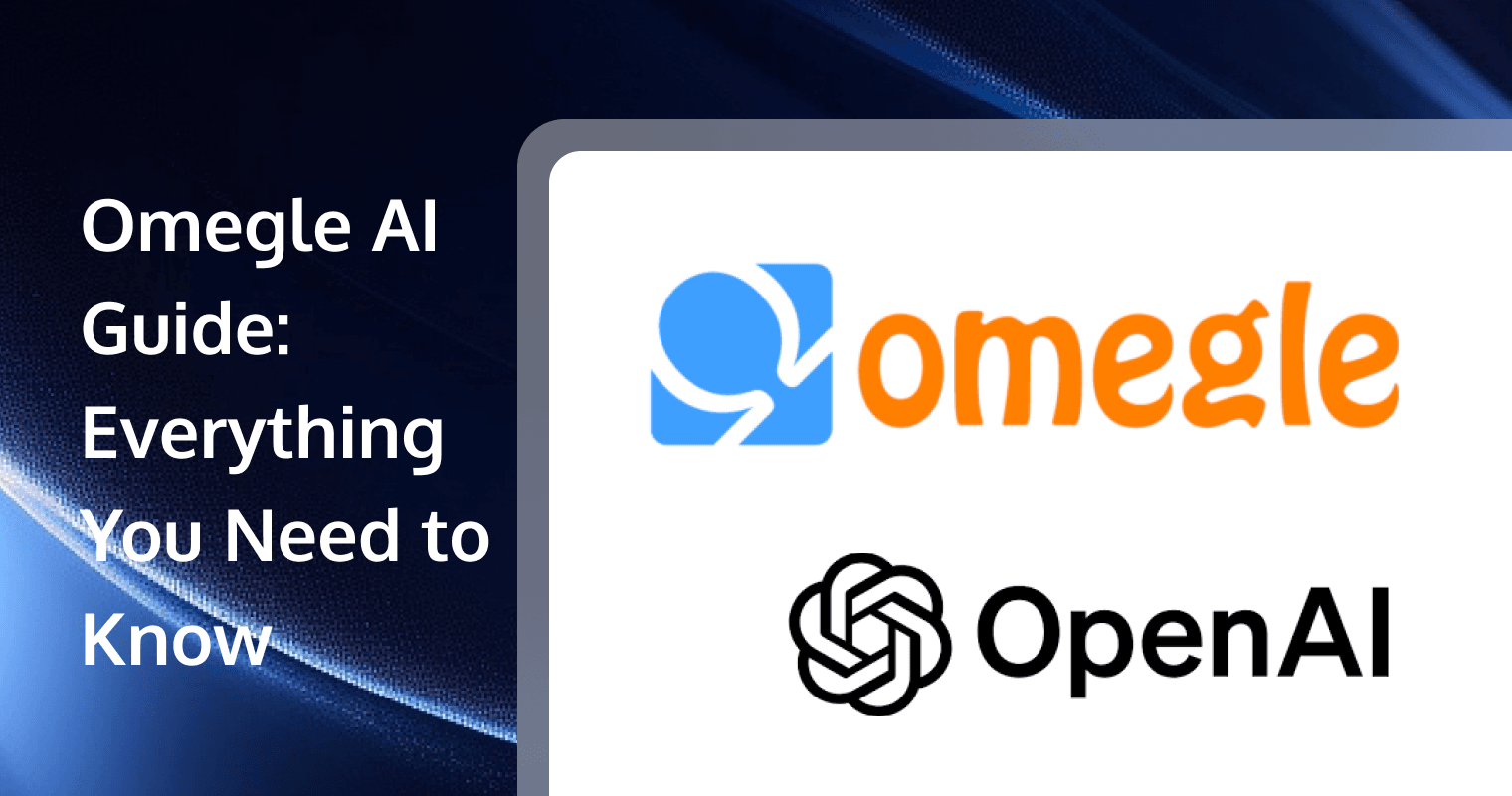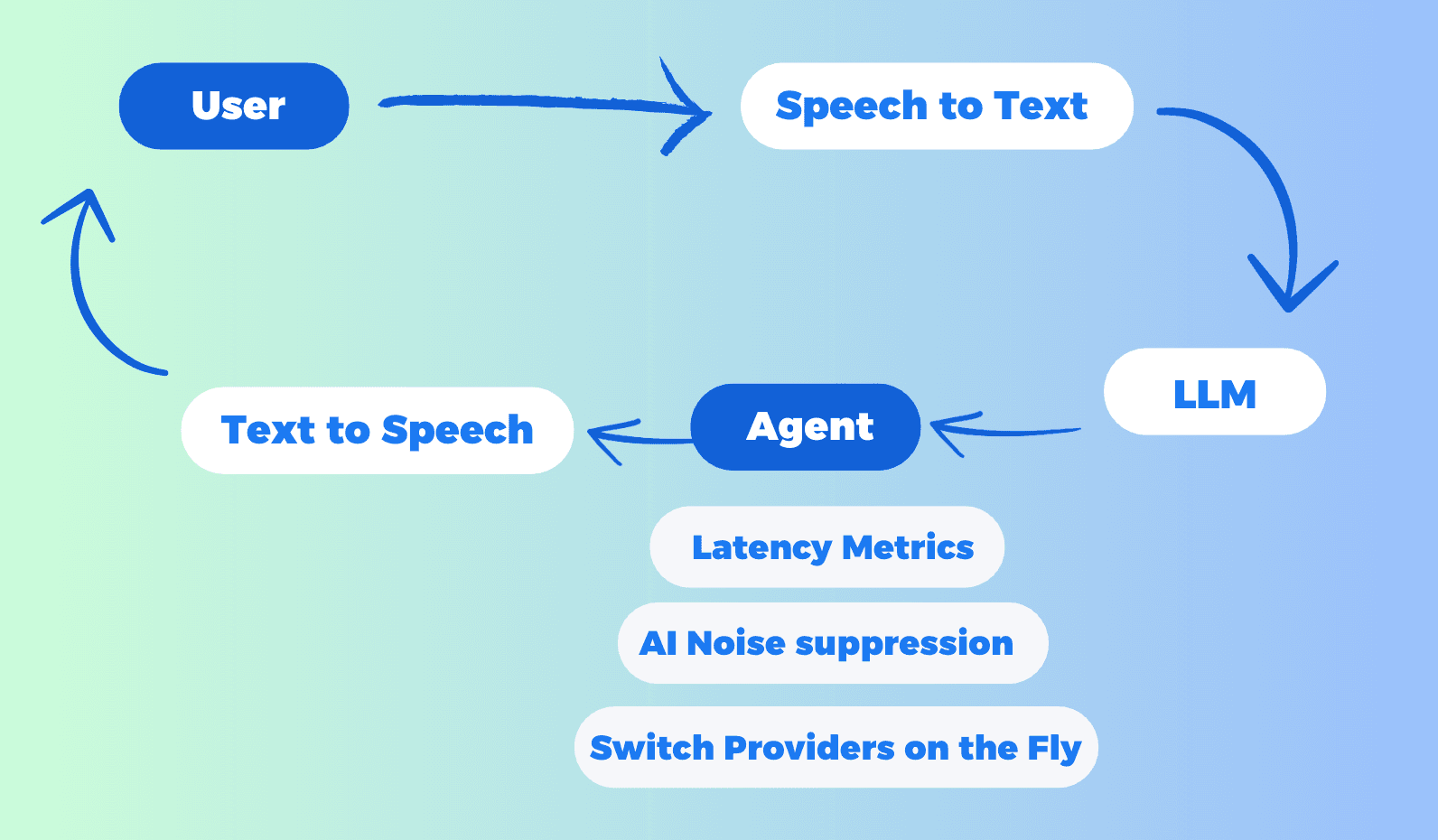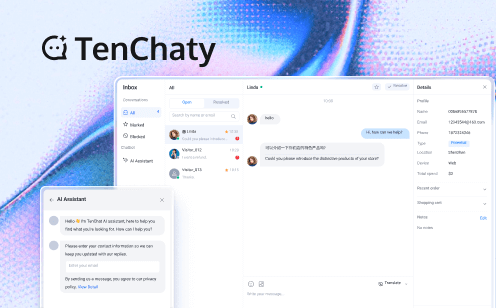
I. Introduction
In the ever-evolving landscape of online communication, Omegle has long been a popular platform for anonymous chatting. Founded in 2009, Omegle pioneered the concept of random video chatting with strangers. However, as technology advances, the integration of Artificial Intelligence (AI) into chat platforms is becoming increasingly prevalent. This fusion has given rise to a new phenomenon: Omegle AI Chat.
The emergence of AI chat technology is transforming the way we interact online. With natural language processing and machine learning algorithms becoming more sophisticated, AI-powered chatbots can now engage in human-like conversations, offering a unique and often more controlled chatting experience.
Why Choose Tencent RTC for Conversational AI?
Looking to build a powerful, no-code AI Voice Assistant? Tencent RTC is your ultimate solution! With its unmatched versatility, ease of use, and cutting-edge features, Tencent RTC makes implementing Conversational AI a breeze. Here’s why it stands out:

1. Seamless Integration with Multiple AI Services
Tencent RTC supports integration with a wide range of STT, LLM, and TTS providers, including Azure, Deepgram, OpenAI, DeepSeek, Minimax, Claude, Cartesia, Elevenlabs and more. This flexibility allows you to choose the best services for your specific use case. When the LLM provider chooses OpenAI, any LLM model that provides OpenAI-compatible API endpoints is supported here, including Claude and Google Gemini.
2. No-Code Configuration
Tencent RTC simplifies the setup process with a user-friendly interface, enabling you to Configure Conversational AI in just a few minutes. No extensive coding knowledge is required, making it accessible to everyone.
3. Real-Time Interruption Support
Users can interrupt the AI's response at any time, enhancing the fluidity and naturalness of conversations.
4. Advanced Features
AI Noise Suppression: Ensures clear audio input, even in noisy environments.
Latency Monitoring: Tracks real-time performance to optimize conversation flow, including LLM latency and TTS latency.
Switch Providers on the Fly: Without ending the conversation, you can modify the interruption duration, or switch between different LLM and TTS providers (and voice IDs) to experiment with various configurations.
5. Multi-Platform Integration
If you like, Tencent RTC also supports local development and deployment across Web, iOS, and Android platforms, providing flexibility for diverse applications
Ready to see it in action? Watch this video or follow the tutorial to start building your AI Voice Assistant today!
II. The Concept of Omegle AI Chat
A. Definition and Characteristics
Omegle AI Chat refers to the integration of AI-powered chatbots into the Omegle platform. These AI chatbots are designed to simulate human conversation, providing users with an interactive experience that combines the spontaneity of Omegle with the consistency and safety features of AI.
Key characteristics of Omegle AI Chat include:
● Natural language understanding and generation
● Personalized responses based on user input
● 24/7 availability
● Multilingual capabilities
● Content moderation and filtering
B. Differences from Traditional Omegle
While traditional Omegle connects random human users, Omegle AI Chat pairs users with AI chatbots. This fundamental difference leads to several distinctions:
1. Consistency: AI chatbots provide a more consistent experience, free from human mood swings or inappropriate behavior.
2. Safety: AI can be programmed to avoid inappropriate content, making the platform safer, especially for younger users.
3. Availability: Unlike human users who may disconnect abruptly, AI chatbots are always available.
4. Language support: AI can communicate in multiple languages, breaking down language barriers.
III. Application of AI Chat in Omegle
A. Natural Language Processing Technology
Natural Language Processing (NLP) is the backbone of Omegle AI Chat. It enables the AI to understand and generate human-like text. Advanced NLP techniques such as:
● Sentiment analysis
● Named entity recognition
● Part-of-speech tagging
● Semantic analysis
These allow the AI to comprehend context, detect user intent, and formulate appropriate responses.
B. Machine Learning Algorithms
Machine learning algorithms play a crucial role in improving the AI's performance over time. These algorithms analyze vast amounts of conversation data to:
● Identify patterns in human communication
● Learn new vocabulary and expressions
● Adapt to different conversation styles
● Improve response accuracy and relevance
C. Emotion Analysis
Emotion analysis, or sentiment analysis, allows the AI to detect and respond to the emotional tone of user messages. This capability enables more empathetic and context-appropriate responses, enhancing the overall user experience.
IV. Advantages of Omegle AI Chat
A. Enhanced User Experience
Omegle AI Chat offers several improvements to the user experience:
1. Instant responses: No waiting for human users to type
2. Tailored conversations: AI can adapt to user interests and preferences
3. Educational opportunities: AI can be programmed to provide informative content
4. Reduced frustration: Less likelihood of encountering unresponsive or rude chat partners
B. Reduction of Inappropriate Content
One of the most significant advantages of AI chat is its ability to filter and moderate content effectively. AI can be programmed to:
● Detect and block explicit or offensive language
● Identify and report potentially harmful content
● Maintain a family-friendly environment
This makes Omegle AI Chat a safer option, particularly for younger users.
C. Cross-Language Communication
AI's multilingual capabilities break down language barriers, allowing users from different linguistic backgrounds to communicate seamlessly. This feature expands Omegle's global reach and fosters cross-cultural exchanges.
V. Potential Challenges and Limitations for AI chat
A. Privacy Concerns
While AI chat can enhance privacy by reducing the need to share personal information with strangers, it also raises new privacy concerns:
● Data collection and storage practices
● Potential for AI to remember and use personal information shared in chats
● Concerns about conversation logs and their potential uses
B. AI Ethics Issues
The use of AI in chat platforms brings forth several ethical considerations:
● Transparency: Should users always be informed they're chatting with AI?
● Emotional manipulation: Can AI form inappropriate emotional bonds with users?
● Bias: How to ensure AI doesn't perpetuate harmful stereotypes or biases?
C. Technological Limitations
Despite rapid advancements, AI still faces limitations:
● Difficulty understanding complex context or sarcasm
● Inability to form genuine emotional connections
● Limited knowledge base compared to human experience
● Potential for repetitive or nonsensical responses in complex scenarios
VI. Future Development of Omegle AI Chat
A. Technological Improvements
Future developments in Omegle AI Chat may include:
● More advanced natural language understanding
● Improved context awareness and memory
● Integration of voice and image recognition
● Enhanced emotional intelligence
B. Predicted New Features
Potential new features for Omegle AI Chat could include:
● Customizable AI personalities
● Integration with virtual or augmented reality
● AI-powered language learning tools
● Theme-based chat rooms with specialized AI
C. Market Outlook
The market for AI-powered chat platforms is expected to grow significantly. Factors contributing to this growth include:
● Increasing demand for 24/7 communication solutions
● Growing acceptance of AI in daily life
● Potential for monetization through premium AI features
● Expansion into new markets and demographics
VII. Case Studies
A. Successful AI Chat Implementations
Several platforms have successfully implemented AI chat features:
1. Replika: An AI companion app that forms personalized relationships with users
2. Xiaoice: Microsoft's AI chatbot with over 660 million users worldwide
3. Mitsuku: A five-time winner of the Loebner Prize for most human-like chatbot
B. User Feedback Analysis
User feedback on AI chat platforms has been mixed but generally positive:
● Many users report enjoying the consistency and availability of AI chat
● Some users express concern about the potential for addiction or over-reliance on AI companions
● Privacy concerns are common among users, particularly regarding data usage
● Users appreciate the safe, moderated environment provided by AI chat
VIII. Best Practices for Implementing Omegle AI Chat
A. Technology Selection
When implementing AI chat, it's crucial to:
● Choose robust and scalable NLP frameworks
● Implement strong security measures to protect user data
● Ensure compatibility across different devices and platforms
● Regularly update and improve AI models
B. User Education
To maximize the benefits of AI chat, platforms should:
● Clearly communicate when users are interacting with AI
● Provide guidelines on how to best interact with AI chatbots
● Educate users about the capabilities and limitations of AI chat
● Offer resources for reporting issues or providing feedback
C. Continuous Optimization
To maintain a high-quality user experience, ongoing optimization is necessary:
● Regularly analyze chat logs to identify areas for improvement
● Conduct user surveys to gather feedback and suggestions
● Stay updated on the latest AI and NLP advancements
● Continuously train and refine AI models with new data
IX. Impact of AI Chat on Online Social Platforms
A. Changes in User Behavior
The introduction of AI chat is likely to influence user behavior in several ways:
● Increased comfort with AI interactions
● Potential reduction in human-to-human online interactions
● Changes in expectations for response times and availability
● Altered perceptions of online relationships and connections
B. Business Model Innovation
AI chat opens up new possibilities for business models:
● Freemium models with advanced AI features for paying users
● Data-driven advertising based on chat content and user preferences
● Partnerships with brands for sponsored AI personalities
● Integration of e-commerce capabilities within chat interfaces
C. Social Impact
The widespread adoption of AI chat could have broader social implications:
● Potential for reduced social isolation, especially for marginalized groups
● Concerns about the impact on human social skills and relationships
● Ethical considerations regarding AI's role in human emotional well-being
● Potential for AI chat to be used as an educational or therapeutic tool
X. Conclusion
A. The Importance of Omegle AI Chat
Omegle AI Chat represents a significant evolution in online communication. By combining the spontaneity of random chatting with the safety and consistency of AI, it offers a unique solution to many of the challenges faced by traditional chat platforms. As AI technology continues to advance, we can expect Omegle AI Chat and similar platforms to play an increasingly important role in shaping online interactions.
B. Future Outlook
The future of Omegle AI Chat is promising, with potential for continued technological improvements, expanded features, and wider adoption. However, it will be crucial for developers and users alike to navigate the ethical and privacy considerations that come with this technology. As AI becomes more sophisticated, the line between human and AI interaction may blur further, leading to new questions about the nature of online relationships and communication.
XI. Introducing TRTC (Tencent Real-Time Communication)
A. Introduction to TRTC
Tencent Real-Time Communication (TRTC) is a leading solution for high-quality, low-latency audio and video communication. As we look to the future of Omegle AI Chat, integrating technologies like TRTC could significantly enhance the user experience.
B. How TRTC Can Enhance Omegle AI Chat Experience
1. Low-latency audio and video calls: TRTC's advanced technology ensures smooth, real-time communication, which could be crucial for AI-human interactions.
2. High-quality audio and video transmission: TRTC's robust infrastructure can support high-definition video and clear audio, making AI interactions more immersive.
3. Cross-platform compatibility: TRTC works seamlessly across various devices and operating systems, ensuring a consistent experience for all users.
C. Future Prospects of Combining TRTC with AI Technology
1. Real-time speech-to-text: TRTC could enable instant transcription of voice interactions with AI, improving accessibility and enabling text-based analysis.
2. AI-assisted video enhancement: Combining TRTC's video capabilities with AI could lead to real-time video filters, backgrounds, or even AI-generated avatars.
3. Intelligent noise cancellation: AI algorithms could work with TRTC to provide superior noise reduction in audio communications.
D. Potential Applications of TRTC in Omegle-like Platforms
● Virtual AI companions with voice and video capabilities
● Multi-user AI-moderated video chat rooms
● AI-powered language exchange platforms with real-time audio/video
● Educational platforms featuring AI tutors with interactive video lessons
As we move forward, the integration of technologies like TRTC with AI chat platforms like Omegle AI Chat opens up exciting possibilities for more immersive, interactive, and engaging online communication experiences.
If you have any questions or need assistance online, our support team is always ready to help. Please feel free to Contact us or join us on Telegram or Discord. For technical problems, you can also get help directly from developers on Stack Overflow.


